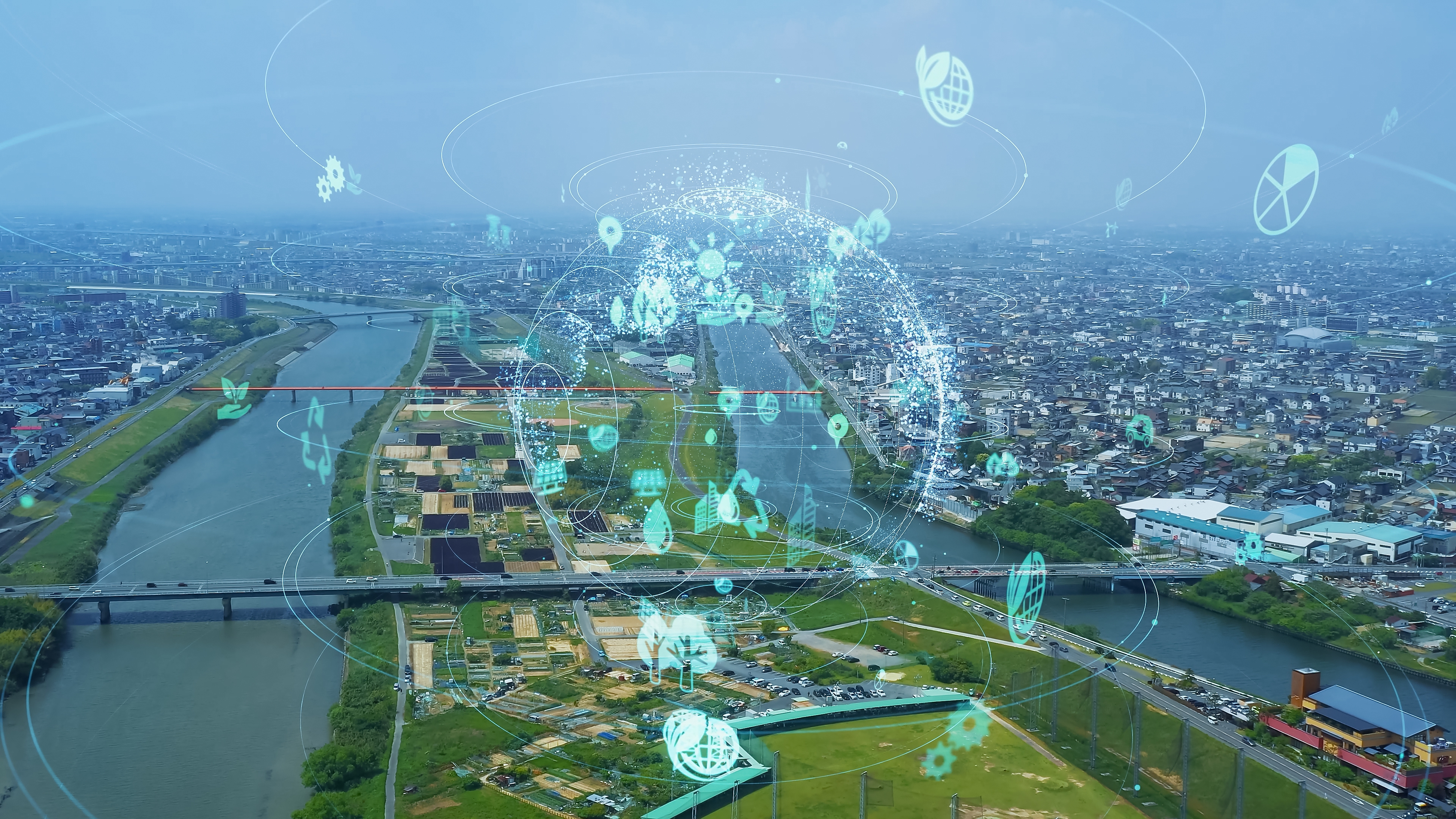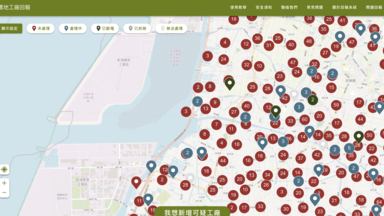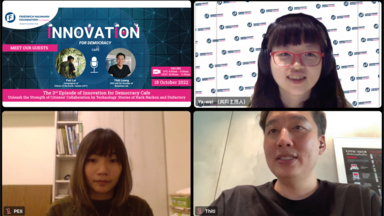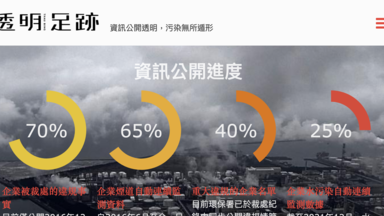Sustainable Development
Perspectives from Taiwan on digital, participatory tools for sustainable cities

Urban spaces are and will be our living spaces of the future. Currently, more than half of the world‘s population lives in urban areas. According to the UN, by 2050, this number will rise to almost 70%. How do we want to make our cities more sustainable? This is and will be one of the key questions of our future. And decisions about our cities’ future need to be made collectively. While experts and planners bring valuable expertise when it comes to sustainable city planning, they don’t always have a comprehensive understanding of people’s day-to-day experiences and needs. Residents know about their neighborhoods, transportation habits, social dynamics, and green spaces. They can inspire innovative solutions that planners or policymakers not necessarily see.
In Taiwan, more and more collaborative projects by civic groups and communities on issues such as air and water pollution monitoring but also preservation of historic sites can be observed in recent years. Digital tools and platforms play a crucial role in their projects, for instance to share environmental data, verify problems, and propose actions.
How do digital tools, especially civic tech, contribute to making cities more sustainable? What are current developments and challenges in Taiwan and what still needs to be done to increase people’s participation in co-creating a more sustainable world? We talked about these questions with an expert in this area, Prof. Dr. Liling Huang.
Prof. Huang is an Associate Professor at the Graduate Institute of Building & Planning of National Taiwan University. Prof. Huang is doing research and teaching on theories of urban planning, global studies, and sustainable urban development in Asia. She is also an activist, promoting public participation in planning practice.

Could you tell us a bit about your journey - what made you interested in sustainable city planning in Taiwan, and in particular the focus on digital technologies in this area?
My research has always focused on community planning. Since the 1990s, I have been working with local communities or social movement groups to start initiatives on issues such as public housing, social housing and housing rights. All these issues are very closely related to urban planning and sustainable development. What I found at that time was that most of the power was in the hands of government officials or experts. So, the general public had very little access and very little power to intervene in those public issues. When I was a PhD student, I started working with NGOs and tried to find solutions for these issues. And I do this until this very day. In the past years, climate change is becoming a more and more urgent global issue. We have an overall global sustainability framework, for example the UN Sustainable Development Goals (SDGs), but how does urban planning respond to the issue of climate change? And in particular, how can diverse actors participate in projects for building a more sustainable future? This is the point where I started thinking about digital tools that enable the public to participate in sustainable planning of their city’s neighborhood. People need to have the right to be informed and to co-create their city. Sustainable planning shouldn’t be just a narrative by the government or planning and technology experts. They often don’t really know about local communities’ resources and practices, for instance people who take care of community gardens or indigenous groups. Even though these projects’ scale is not that big, but its social value is very important. These voices need to be included in sustainable policies.
What is, according to you, the role of digital technologies in sustainable development?
Digital technologies have several advantages. First, they allow for more transparent dissemination of knowledge between the government and the public. Secondly, they can improve collaboration and bring different stakeholders to one table for exchange, and thirdly, digital tools give agency and power to local communities. For me, it is important that digital tools can give local communities the chance to get transparent information about government policymaking for sustainable development. When they have this information, they have more bargaining power with planning experts and government officials in the decisions-making process. This is how it should be done in a democratic society. It gives the civil society a voice in policymaking.
Could you share an example for inspiring civic-tech developments with sustainability focus in Taiwan?
I want to share the example of CarbonUPTake (碳匯城鄉), an initiative for preserving and restoring carbon sinks from g0v, that evolved from the Presidential Hackathon I think two years ago. This project also came mainly from urban planners. Their concept was to develop a digital map of urban and rural areas in Taiwan and identify public land that can be used to install more solar panels or micro-hydropower plants, or to plant more trees and create forests. All with the goal of reducing emissions and working towards a low-carbon or the zero-carbon transformation. In this project, g0v works with both the public and private sectors, as well as the civil society, to identify land use, collect geographic information and biodiversity indicators, and then share it on the digital platform, so that other communities can use them to initiate projects.
What are current challenges of such civil society projects in Taiwan?
It seems to me that the degree of co-creation between top-down and bottom-up actors, between the government and civil society, is still not enough. On the one hand, we have digital communities working together with local communities, as in the case of g0v. On the other hand, we have the government, which is mainly focused on e-governance. There are a few projects that combine top-down and bottom-up collaboration in Taiwan, for instance the AirBox project, an online platform that collects and publishes air pollution data with the public. This was a collaborative project between academia, civil society, and the government. I think there should be more government projects that put civic participation and the demands of the local community at the center, rather than just vaguely demonstrating that they have taken the public into account. But I don’t see many of such projects yet.
What has to be done to raise the awareness and increase people’s participation in co-creating a more sustainable world?
A great example of a format to raise awareness is the national government's Presidential Hackathon. There should be more of this call for proposals from citizens to the government and then projects to incorporate into policy making. Also, I think education on civic tech in schools is very important. Students may already have opportunities to learn programming, like Python or other techniques, but how can that be connected to solving societal issues like climate change? I think there should be more education how to use technical tools to solve such larger societal issues.
* The interview was conducted by Mia Hallmanns, Communications Officer at FNF Global Innovation Hub.
Disfactory Project: How to Detect Illegal Factories by Open Source Technology and Crowdsourcing

The existence of illegal factories in agricultural lands has been a serious problem for environmental protection in Taiwan. However, CET, an active environmental NGO in Taiwan, and members of g0v, one of the biggest civic tech communities in Asia, co-created the Disfactory project as an effective solution. The story of Disfactory was featured in the 3rd episode of FNF Global Innovation Hub's Innovation for Democracy Cafe.
The 3rd I4D Café: How Can Technology Help Citizens to Hold Governments and Businesses Accountable?

In the third episode of Innovation for Democracy Café, Ms. Ya-wei Chou from FNF Global Innovation Hub discussed with two guest speakers about their experience in using technology to encourage citizens’ participation and collaboration on monitoring and examining governments and businesses: Mr. Thitiphong Luangaroonlerd, the CEO of Boonmee Lab in Thailand, and Ms. Peii Lai, Campaigner from Citizens of the Earth (CET) in Taiwan.
Thaubing Footprint: A New Sustainability Movement Based on Open Data

Taiwan’s GCAA leveraged the power of civil society and Taiwan’s vibrant civic tech community to create the wildly successful website “Thaubing Footprint” that monitors pollution and that is based on open data. Hung-wen Tseng explains how GCAA achieved that, and shares her recipes for innovation with FNF Global Innovation Hub. Register for Innovation for Democracy Café on April 20, UTC 9am to learn more about this project!
